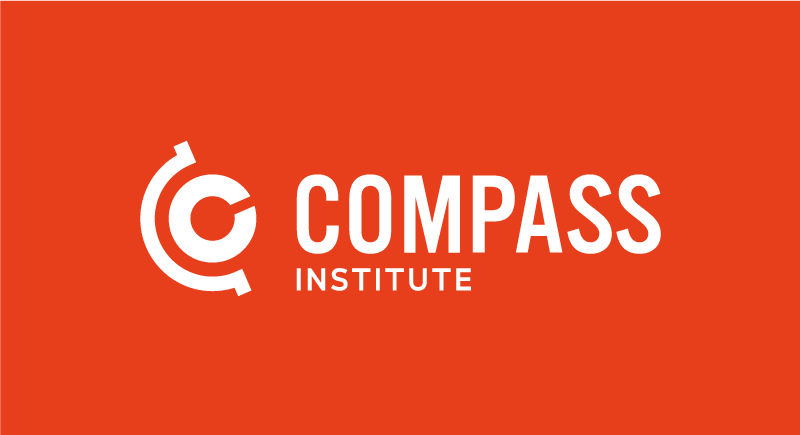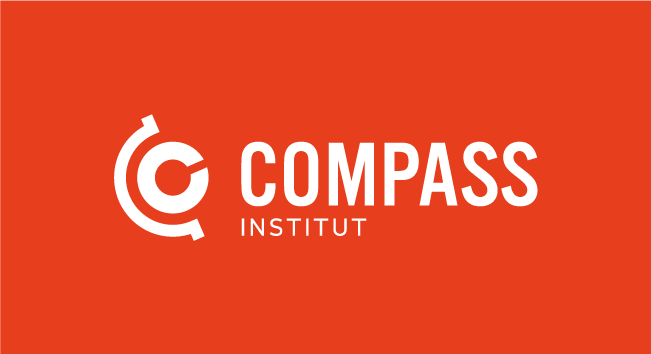OUR PROJECTS
COMPASS SUPPORTS, DESIGNS AND PARTICIPATES IN THE IMPLEMENTATION OF STRATEGIC PLANS AND REFORM PROCESSES, EMPHASIZING SUSTAINABLE DEVELOPMENT IN VARIOUS COUNTRIES AROUND THE WORLD.

ARGENTINA
CONSULTANCY FOR THE SUPPORT TO THE MODERNIZATION OF THE STATE-SECTORAL IMPLEMENTATION OF RBM.
Cabinet of Ministers (JGM), Ministry of Modernization of the Nation (MMOD), Ministry of Finance (SH), Programa de Fortalecimiento Institucional Provincial y de Gestión Financiera (PROFIP II) of IDB and IDB
2017 – 2018
The objective was to follow up the progress of the 100 priority initiatives of the Presidency according to the 8 National Government Objectives. The project provided technical support and training to technical advisers and professionals from the top level authorities in planning, budgeting, state reform, decision-making, and M&E as well as pilot sectors (including health and education) in terms of RBM implementation and aligning planning and budgeting processes. More specifically, the project included the following activities:
(1) Propose improvements on methodologies for planning, priority projects monitoring, budgeting, M&E for results and the articulation of those methodologies
(2) Strengthen the capacities of advisers and professionals from those institutions in the revised methodologies
(3) Implement and test the methodological tools for 10 priority initiatives

BURKINA FASO
SUPPORT IN STRATEGIC PLANNING AND OPERATIONAL BUDGETING TO THE MINISTRY OF ECONOMY AND FINANCE.
Ministry of Economy and Finance
Government of Burkina Faso
2009 – 2010
- Updating the expenditure timeframe in order to allow players to process cases within a small and reasonable period taking into account the new environment of fiscal decentralization;
- Identifying problems that impeded a substantial reduction in numbers of rejections of public expenditure payment requests (procurement process, expenditure circuit, classification of supporting documentation, a priori and a posteriori financial controls,, etc..);
- Proposing short- and medium-term recommendations;
- Proposing a mechanism for the production, transmission and processing of data relative to the processing time expenditure of local authorities and central public institutions;
- Proposing a structure of periodic reports on payments’ delays;
- Analysing the current processing system of calculating the time delay, and making proposals for improvement
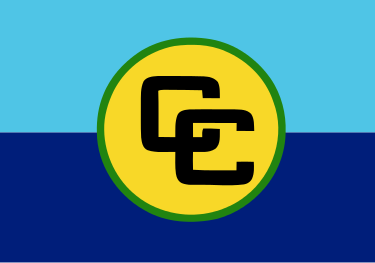
CARICOM (Caribbean Community)
STRENGTHENING THE REGIONAL MONITORING AND EVALUATION SYSTEMS FOR COMPREHENSIVE DISASTER MANAGEMENT (CDM) IMPLEMENTATION (3 PHASES)
Caribbean Disaster Emergency Management Agency (CDEMA), Coordinating Unit (CU), and CARICOM 18 participating States
2013-2017/strong>
Several consultancies were conducted to support the CDEMA Coordinating Unit (CU) and its focal points in CARICOM member countries, National Disaster Offices (NDO) to improve its capacity in strategic planning, budget programming, human resource management, and monitoring and evaluation systems, and related information systems. The team provided training services, technical support, design and implementation of a results-based M&E software called CDM Monitor for monitoring strategic, program, and project results. This project was conducted with consultation of various global and regional partners of CDEMA such as IFRC – Red Cross Caribbean; CARICOM Regional Organisation for Standards & Quality (CROSQ); Canadian and UK aid agencies, and the European Fund, among others.

CAMBODIA
ELABORATION OF NATIONAL MONITORING AND EVALUATION GUIDELINES FOR THE NATIONAL STRATEGIC DEVELOPMENT PLAN.
Ministry of Planning and UNICEF
2022
Mapping of existing Monitoring & Evaluation (M&E) guidelines and systems. Elaboration of national technical guidelines for the M&E of the National Strategic Development Plan (NSDP). Design of the M&E system assessment tool and action plan to have a well-functioning national M&E system.
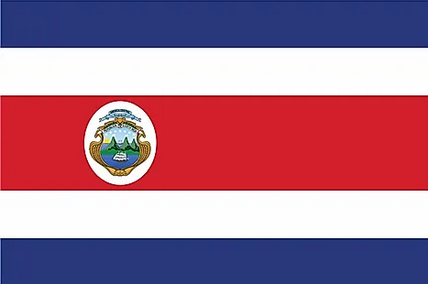
COSTA RICA
The project helped update the 2012-2016 Municipal Development Plan (PDM) for the 2017-2020 period, building on the results of the Municipality of San José (MSD) Performance Diagnostics (GMD) of the PDM. The progress in the formulation of the Action Plan for the Canton of San José has been directed towards strengthening of the municipal financial management of the Canton, thus ensuring a transparent administration that can provide goods and services to citizens and modern and sustainable financial management. The team proposed a Results-Based Management methodology to accompany the formulation process of the 2017-2020 PDM of San José, in order to generate technical capacities within the Municipality and formulate through a learning by doing process, a proposal to orient the PDM towards results, develop guidelines for the elaboration of a Multi-Annual Oriented Budget for Results, and a methodology for the monitoring and evaluation of the plan.

COSTA RICA
EVALUATION OF THE NATIONAL STRATEGY: COMPREHENSIVE APPROACH TO CHRONIC NONCOMMUNICABLE DISEASES AND OBESITY (ECNT Y O) 2013-2021
Ministry of National Planning and Economic Policy (MIDEPLAN)
2019
- 9 interviews conducted with key actors from public entities and the CSO.
- Participatory Workshop conducted with (A4R) for 22 technical and operational actors from 7 public institutions linked to the National Strategy.
- 1 Focus Group conducted to 8 representatives of Civil Society (OSC), Academy, Legislative Branch, Private Sector

DOMINICAN REPUBLIC
INDEPENDENT VERIFICATION AGENT FOR THE PROMOTION AND SOCIAL PROTECTION PROGRAM.
Cabinet for Social Policy of Dominican Republic and World Bank
2016 – 2022
The Progresando con Solidaridad (PROSOLI) program is the main strategy of the Government of the Dominican Republic for poverty reduction. PROSOLI protects the poorest families and improves the human and social capital conditions by providing conditional cash transfers, to ensure minimum consumption and access to basic health and education services. The objective of this consultancy is to provide an external technical opinion and verification of the results indicators based on agreed outcomes for the World Bank disbursement. To do so, the experts verified the transactional databases of at least 6 agencies and revised the achievement of criteria for every result reported under the program sampled beneficiary databases and designed algorithms to facilitate the verification protocol.

DOMINICAN REPUBLIC
CONSULTING FOR THE ACQUISITION OF COMPLEMENTARY MODULE TO SIGEF FOR THE MANAGEMENT OF PILOTS OF BUDGET PROGRAMMES RESULT ORIENTED 2019-2020.
General Budget Office (DIGEPRES) of the Ministry of Finance and UNDP
2020
- Documentation and secondary data review
- Elaborating the conceptual model for Results-Based Budgeting and Monitoring.
- Collecting data from 2 pilots on cost and physical goals
- Designing budget module
- Developing pedagogical material and conducting public servant training activities of the 9 pilots in Budget and Results Monitoring

DOMINICAN REPUBLIC
AGENT DE VÉRIFICATION INDÉPENDANT POUR LE PROJET DE PROMOTION ET DE PROTECTION SOCIALE EN RÉPUBLIQUE DOMINICAINE
Secrétaire de la Présidence et Banque mondiale
2016-2021
Agir en tant qu’agent de vérification indépendant (IVA) du projet de promotion et de protection sociale qui consiste à: a) évaluer les taux d’atteinte des objectifs convenus entre le Gouvernement de la République dominicaine et la Banque mondiale pour la sous-composante 1.1 du projet qui consistait à combler les lacunes de couverture des programmes sociaux pour les ménages extrêmement pauvres; b) certifier les décaissements pour le mécanisme de décaissement de l’aide fondée sur les résultats (OBA).

EL SALVADOR
CONSULTANCY FOR THE MIDTERM EVALUATION OF COMMUNITY FAMILY HEALTH TEAMS PROGRAM (ECOS)
Technical Secretariat of the Presidency and The World Bank
2013-2014
The Equipos Comunitarios de Salud Familiares – ECOS programme (Family health community teams in English) is a programme that was designed to improve the performance in the delivery of primary health care services. The Ministry of Health, the Presidency Technical Secretariat, and the World Bank wanted a mid-term evaluation of this new programme Program, which is complementary to the traditional health care centers. The evaluation analyzed the relevance, effectiveness and sustainability of the programme, the replicable nature of the intervention, the internal and external consistency of the design and implementation of the intervention, and the preliminary outputs and immediate outcomes. The data collection methods included 114 interviews with stakeholders, 190 focus groups, and a survey of 1460 households. The evaluation was well received by the three sponsors of the study and led to adjustments in the second phase.
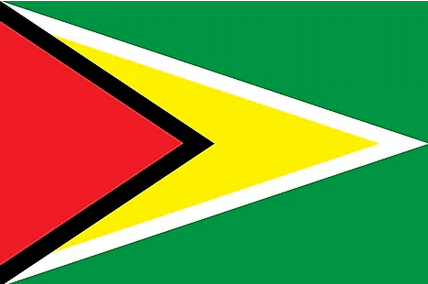
GUYANA
TRAINING, TECHNICAL SUPPORT, AND SUPPORT TO INFORMATION SYSTEMS IN STRATEGIC PLANNING, BUDGETING FOR RESULTS, AND M&E AT MINISTRY OF FINANCE, HEALTH, EDUCATION, AGRICULTURE, PUBLIC WORKS, AND REGIONS 5, 6, 7 AND 10
Ministry of Finance, Ministry of Education, Ministry of Public Health, Ministry of Communities, Ministry of Public Security, Ministry of Agriculture, Ministry of Public Works, Regional governments, IADB, UNDP, and Government of Guyana
2012 – 2022
Several consultancies have been conducted over the period spearheaded or facilitated by the Office of the Budget of the Ministry of Finance to support this Ministry as well as selected line ministries (Education, Public Health, Communities, Security, Agriculture, Public Works) and regional governments in the implementation of various pillars of Results-Based Management, mainly related to Budgeting for Results and Results-Based Monitoring & Evaluation. Those consultancies included capacity-building, technical assistance, and support to improving information systems.

JAMAICA
BUDGET ANALYSIS AND CAPACITY BUILDING IN FOR THE MINISTRIES OF FINANCE, HEALTH, AND EDUCATION
Ministry of Finance and Public Service (MOFPS), Ministry of Education, Youth and Information (MOEYI) and Ministry of Health and Wellness (MOHW), UNICEF, PAHO and UNDP
2020 – 2022
This support includes several consultancies conducted for UNICEF, PAHO and UNDP as part of their Joint Programme (JP) to strengthen the Public Finance Management capacity of the MOFPS, MOEYI, and MOHW thereby ensuring efficient, effective, and equitable resource allocation towards the achievement of the SDGs and national outcomes as reflected in Jamaica Vision 2030. Among other activities, the team; (i) assessed the implementation of the Medium-Term Results-Based Budgeting (MTRBB) through document review, Key Informant Interviews, and gap analysis; (ii) supported the improvement of planning, budgeting and monitoring guidelines; (iii) provided training and technical support; and (iv) conducted “Deep Dive” studies of public expenditures and results for specific programmes in Health and Education.

JAMAICA
TRAINING ON MEDIUM-TERM RESULTS BASED BUDGETING UNDER THE SUSTAINABLE DEVELOPMENT GOALS JOINT PROGRAMME IN JAMAICA
Government of Jamaica and Joint Programme UNICEF – PAHO – UNDP
2021
Capacity needs assessment based on the level of implementation of the Medium-Term Results Based Budgeting (MTRBB). Design and delivery of a capacity building training plan for 180 civil servants. Elaboration of the MTRBB guidelines for the education and health sectors.

MALAYSIA
Evaluation of Capacity Development Initiatives.
UNICEF Malaysia Country Office
2015 – 2016
The project aimed at conducting an independent summative and formative evaluation of Capacity Development Initiatives (CDI) conducted by UNICEF Malaysia from 2011 until 2015. Forty initiatives were implemented, including capacity development activities, including trainings, workshops, conferences and studies, in particular in the areas of social policy, education, child protection, corporate social responsibility, communication for development, and planning, monitoring and evaluation, to address capacity limits of individual staff, key institutions from the public sector, NGOs, CSOs, and the private sector, as well as contributing to a better enabling environment.
The backbone of the data collection and analysis strategy was a methodological process called Assessing for Results (results-based diagnostic evaluation) which is a structured, participatory, and rapid evaluation approach combining qualitative and quantitative methods. The master questionnaire was administered in 7 versions, adapted in terms of content to the role and knowledge of various respondents as well as to the format of data collection, i.e. in: 1) individual in-depth interviews of actors in 9 purposively sampled capacity development activities; 2) in-depth interviews with relevant stakeholders from the Central Government and the Government of Sabah; 3) an online survey of beneficiaries of 6 of those case studies; 4) one workshop with UNICEF and partners in Sabah; 5) one workshop with UNICEF and partners in Sarawak; 6) one workshop in Kuala-Lumpur with the UNICEF Country Management Team, and 7) one workshop in Kuala Lumpur with UNICEF and partners. This was completed by a desk review of relevant documentation and an analysis of financial data to assess cost-effectiveness.
The quality control was conducted in partnership with the project manager and the support from the Malaysia Country Office team and of a Reference Group. Several validation meetings were conducted at key milestones.

MALI
SUPPORT FOR THE IMPLEMENTATION OF AN IT APPLICATION FOR BUDGETING FOR RESULTS
Directorate General of Budget (DGB), and Government of Mali
2017 – 2018
- Facilitating a participatory diagnostic of the implementation of RBM pillars with national and sub-national actors
- Proposing a methodology to sector ministries and local governments for developing a unit cost matrix of programme outputs, articulate the plan and budget, and develop budget scenarios based on appropriate costing and results indicators.
- Supporting the improvement of the existing IFMIS accordingly through a series of coaching sessions at a distance
- Organizing a study tour in Canada for a MEF delegation to meet federal, provincial, and municipal governments.

MOROCCO
DESIGN OF AN INTEGRATED INFORMATION SYSTEM FOR THE MONITORING & EVALUATION OF PUBLIC POLICIES
Ministry of Economy, Finance and Administration Reform, and UNDP
2019 – 2021
The project aimed at designing an integrated information system for the monitoring and evaluation of public policies (SIISEPP). This system was integrated to enable to move beyond sector M&E and provide a cross-cutting strategic perspective on policies, programs and key projects. It was also based on Results-Based Management, with its focus on results and performance of public policies, Finally, it was implemented through an agile and participatory approach, involving both subject matter and IT experts as well as a wide range of actors.
https://www.cg.gov.ma/

MOROCCO
DATA QUALITY REVIEW OF MCA-MOROCCO PROJECTS
MCA-Morocco
2022
This project involved a review of data quality in two sectors where the MCA-Morocco funds projects: land management and vocational training/labour market. This involves significant field data collection at local level, then analysis, aggregation and benchmarking. It was followed by the monitoring on the implementation of the recommendations made in the DQR, and the organization and delivery of training sessions for relevant actors in each of the two sectors in close collaboration with the M&E Department (DSE).

MOROCCO
Data Quality Review of the MCA-Morocco Monitoring & Evaluation Plan in Morocco
MCA-Morocco and Millennium Challenge Corporation
2020-2022
Conducting a Data Quality Review (DQR) of the MCA-Morocco Monitoring & Evaluation (M&E) Plan, including: a) conducting field visits to review the data collection methodologies used for the MCA-Morocco’s M&E plan; b) reviewing the Compact indicators; c) assessing the quality of the data feeding the set of indicators; d) verifying the compliance with MCC’s Policy on Monitoring and Evaluation of Compacts as wells as with Guidelines on Economic and Beneficiary Analysis, Common Indicators, and Gender and Social Inclusion.

MEXICO
IMPLEMENTING RESULTS-BASED BUDGETING IN THE STATES OF MICHOACÁN AND TABASCO, MEXICO
State of Michoacán: COPLADE, Secretary of Finance, and IADB
State of Tabasco: SEPLADE, Coordination of Regional Development and Strategic Projects (CGDRPE), and IADB
2011 – 2014
The consultancies helped implement concretely results-based budgeting in the States of Michoacán and Tabasco through a set of training and support activities, including capacity-building of key staff, development of instruments to implement budgeting for results at global State level and in specific sectors; more specifically the Secretariat of Education and the Secretariat of Social Protection of the State of Michoacán; and the State Roads Agency, the Secretariat for Agriculture and Livestock, the State Council for Forests, the Secretariat for the Territory Organization and Public Infrastructure for the State of Tabasco.
https://www.michoacan.gob.mx/

MOZAMBIQUE
TECHNICAL ASSISTANCE FOR THE EVALUATION OF THE FIRST PHASE OF IMPLEMENTATION OF THE PLANNING AND BUDGETING SYSTEM IN MOZAMBIQUE
Ministry of Finance and UNICEF Mozambique
2022
The objective of this Consultancy in Planning and Budgeting by Programs was to support the National Directorate of Planning and Budget (DNPO) to assess the capacity of the MEF/CEDSIF and the effectiveness of the implementation process of the Planning and Budgeting Subsystem (SPO). The methodology involved remote document review, an initial information survey questionnaire completed by collecting information at central, provincial (Provincial Directorates and Office of the Governor in the Provinces of Sofala and Nampula) and district levels in a mission that took place in May 2022.

MOZAMBIQUE
TECHNICAL ASSISTANCE TO IMPROVE KEY DOCUMENTS AND ALIGN WITH THE NEW PROGRAM-BASED PLANNING AND BUDGETING (PBB) APPROACH AND INCLUDE TRANSPARENCY RECOMMENDATIONS
Ministry of Finance and UNICEF Mozambique
2020 – 2021
This project supported the National Planning and Budget Office (DNPO) to improve the National Programs Portfolio, the State Budget, and the Economic and Social Plan (structure, contents, and templates). Specific objectives were to guarantee the coherence and alignment of those key documents with national strategies and SDGs, ensure the quality of the indicators, and introduce recommendations made by the OBI and PEFA evaluations.
https://www.unicef.org/mozambique

MOZAMBIQUE
IMPROVEMENT OF THE PORTFOLIO OF NATIONAL PROGRAMMES IN MOZAMBIQUE
Ministry of Economy and Finance and UNICEF Mozambique
2020-2021
Support to the Planning and Budgeting National Department of the Ministry of Economy and Finance (MEF) to improve the Portfolio of National Programmes by:
a) using a Results-Based Management (RBM) approach;
b) clarifying the linkages between the National Economic and Social Plan and the national budget in a joint document called PESOE;
c) ensuring the coherence and alignment with key national strategies and the SDGs;
d) validating the quality of the indicators; and e) making recommendations on the basis of the results of the Open Budget Survey and PEFA evaluations.

MYANMAR
EVALUATION OF UNICEF PF4C TECHNICAL SUPPORT TO THE MINISTRY OF SOCIAL WELFARE, RELIEF AND RESETTLEMENT OF THE GOVERNMENT OF MYANMAR – PHASES I, II, AND III
UNICEF
2020 – 2021
This evaluation of Myanmar PF4C Programme at MSWRR:
- Analysed the strategies used by UNICEF Myanmar and reconstruct the Theory of Change behind the provision of technical assistance (TA) to strengthen PFM at MSWRR to improve essential social services for children, mothers, and other vulnerable groups.
- Assessed the overall quality and value of the TA across the five project components:
- Awareness and buy-in,
- Planning,
- Budgeting,
- ) Reporting and accounting, and
- Evidence generation and advocacy.
- Examined the evolution of the project Technical Assistance, its likely impact and sustainability, both at the national as well as the sub-national level; and
Drew lessons learned, identify good practices and innovations that can be applied to future interventions in PF4C.
The project included the following activities: desk review, Key Informant Interviews (KIIs) at central level and partially at provincial level, elaboration of case-studies, partial cost-effectiveness analysis, participatory assessment workshop using the Assessing for Results process, analysis and triangulation, preparation, presentation and validation of the evaluation report.

NIGER
DATA QUALITY REVIEW OF THE MCA-NIGER PROGRAMME IN NIGER
MCA-Niger and Millenium Challenge Corporation
2021-2023
Review of the quality of data produced by the MCA-Niger programme, including a project to develop irrigation perimeters and access to agricultural markets and another project to promote climate change resilient communities supporting agricultural and livestock production and markets. Capacity-building of stakeholders in DQR.
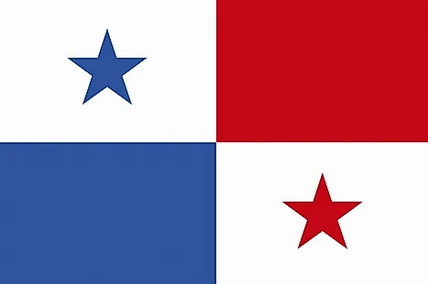
PANAMA
SUPPORT TO THE IMPLEMENTATION OF MANAGING FOR DEVELOPMENT RESULTS APPROACH AT CENTRAL, SECTOR AND SUBNATIONAL LEVELS, MORE SPECIFICALLY IN PUBLIC INVESTMENT MANAGEMENT, RESULTS-BASED BUDGETING, AND RESULTS-BASED M&E.
Ministry of Economy and Finance (DPI, DIPRENA), multiple ministries and municipalities, and The World Bank, IADB, UNDP, UNFPA
2010 – 2022
This involved as series of consultancies spearheaded or facilitated by the Ministry of Economy and Finance to support this Ministry as well as selected line ministries and agencies and municipalities in the implementation of various pillars of Results-Based Management, mainly related to Public Investment Management, Budgeting for Results and Results-Based Monitoring & Evaluation. Those consultancies included massive capacity-building, technical assistance, and support to improving information systems.

PHILIPPINES
RESULTS-BASED MONITORING AND EVALUATION FOR PERFORMANCE INFORMED BUDGETING
Department of Budget and Management (DBM) and UNICEF
2015 – 2016
The project supported the Department of Budget and Management (DBM), and more specifically the Performance M&E Bureau (PMEB), in collaboration with the National Economic Development Agency (NEDA) and implementing agencies, in particular the Department of Social Welfare and Development with its programme on Early Childhood Care Development – ECCD – First 1000 days intervention package, to improve Results-Based M&E in relation with Budgeting for results and Public Finance Management. The assignment implied to identify rapidly and capitalize on various ongoing initiatives, define value added activities for the PMEB of DBM, engage with other actors within DBM and outside of DBM, in particular NEDA, conduct on the job training of PMEB staff who where relatively new to M&E and performance-informed budgeting, and deliver rapidly some quick wins including policy and guidelines. For example, the Monitoring, Evaluation, and Reporting Policy was endorsed by DBM board in a record six months.

ROMANIA
ASSISTANCE TO THE MINISTRY OF NATIONAL EDUCATION FOR REDUCING EARLY SCHOOL LEAVING (ESL)
Intermediate Body for Sectorial Operational Programme for Human Resources Development (OIPOSDRU), Ministry of National Education and Scientific Research (MESR), and The World Bank
2015
The consultancy supported the elaboration of an M&E system of the implementation of the Strategic Framework to Reduce Early School Leaving as well as of the Human Capital Operational Program (POCU) 2014-2020 of OIPOSDRU. More specifically, it involved: i) the facilitation of one workshop with technical officials; ii) one high level seminar and awareness with high level officials; iii) the enhancement of the Performance Measurement Framework and data collection strategy to better articulate the contribution of POCU to the target group and reduce ESL following a Theory of Change approach and enhance OIPOSDRU capacity to assess its program according to OECD/DAC criteria.
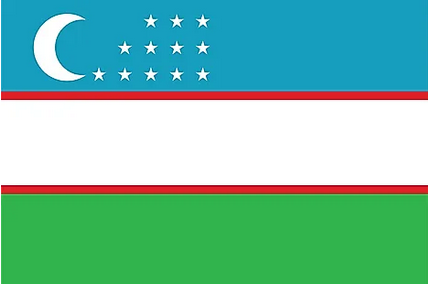
UZBEKISTAN
SUPPORT CAPACITY DEVELOPMENT OF MINISTRY OF FINANCE AND OTHER SOCIAL MINISTRIES IN PUBLIC FINANCE FOR CHILDREN (PF4C).
2022
Development and delivery of a comprehensive training course on contemporary budgetary frameworks and PFM systems for the Ministry of Finance and social sector ministries, including PFM and budgeting principles, budgetary and value for money analysis tools, skills for strategic policy dialogue, and key concepts related to the Integrated National Financing Framework and UNICEF’s Global Programme Framework PF4C. Provision of coaching/mentoring and quality assurance for budgetary analysis of public spending on child-sensitive social sectors.
https://www.unicef.org/uzbekistan/en

VIETNAM
MID-TERM REVIEW OF THE NTP-PR AND P135-II POVERTY REDUCTION PROGRAMS.
Ministry of Labor, Invalids and Social Affairs (MOLISA), Committee for Ethnic Minority Affairs, and UNDP
2008 – 2009
The project provided technical assistance for the Mid-Term Review of two major poverty reduction projects, the National Poverty Reduction programme (NTP-PR) managed by the Ministry of Labor, Invalids, and Social Affairs (MOLISA) and the P135-II programme managed by the Committee for Ethnic Minority Affairs. This evaluation included 15 studies conducted by 21 national professionals and consultants that used a variety of methods such as interviews with key actors, administrative and financial data analysis, statistical analysis, beneficiary survey, civil servant survey, public expenditure tracking survey, community of practices with civil society organizations, thematic studies, etc. Since those programmes are cross-cutting, a number of line ministries and agencies and their supporting partners were involved in this major evaluation.
https://www.undp.org/vietnam

WORLD
UNIVERSITY MASTERS CERTIFICATE PROGRAMS IN PUBLIC FINANCIAL MANAGEMENT, PERFORMANCE INFORMED BUDGETING, PUBLIC PROCUREMENT, PUBLIC INVESTMENT MANAGEMENT, MONITORING AND EVALUATION, FOR SUSTAINABLE DEVELOPMENT, JOINTLY OFFERED WITH UNIVERSITY LAVAL (CANADA)
Various managers and professionals from national and subnational governments, international organizations, and projects
2006 – Ongoing
The University Masters Certificate programs have been offered in English, French and Spanish to high-level civil servants jointly by IDEA and University LAVAL from 2008 until 2021 and by COMPASS and University LAVAL since 2022. Training includes formal class presentations, case studies, and working group sessions. Each programme includes 3 modules and has a duration on 180 hours. Training has been conducted in face to face, at distance (with a mixture of synchronous and asynchronous pedagogical activities) or mixed modality.

WORLD
INTEGRATED NATIONAL FINANCING FRAMEWORK MONITORING & REVIEW BUILDING BLOCK #3: ANALYTICAL FRAMEWORK AND COUNTRY CASE STUDIES
UNDESA
2020 – 2021
This project aimed to propose an analytical framework and country case studies for the Integrated National Financing Framework (INFF) Monitoring & Review (M&R) Building Block #3.

WORLD
MAPPING EXERCISE ON UNICEF SUPPORT TO NATIONAL EVALUATION CAPACITY DEVELOPMENT (NECD)
UNICEF
2017
The mapping generated information on what UNICEF has done and achieved in terms of National Evaluation Capacity Development (NECD), mainly since the elaboration of the revised UNICEF evaluation policy in 2013 to: i) appreciate the range of NECD interventions that UNICEF led or participated in; and ii) provide the basis for the next phase which would be the further development of a UNICEF organizational strategy or framework on NECD. The experts collected data from 65 country offices and 11 case studies at global, regional and country level, and (i) identified main types and approaches used, (ii) conducted a participatory analysis of strengths and weaknesses, and (iii) identified facilitating factors to (iv) provide elements of orientation for the future NECD initiatives.
Findings and recommendations were used to prepare guidance notes to support UNICEF CO and other stakeholders to undertake, reinforce or sustain NECD; to curtail ineffective practices and initiatives; to report on the implementation of the General Assembly on NECD; and to make informed decisions in terms of priorities and areas for appropriate, well-targeted intervention with regards to national evaluation capacity development. The analysis of data provided insights of relevance, effectiveness, efficiency, and sustainability and enabled to identify costs, outputs and outcomes of the 65 NECD mapped.
Main users of the information generated through the mapping are from: Country, Regional and Global: Country Management Teams; Country Level M&E staff, Regional Management Teams, Regional Level M&E staff Partners, Management and staff of the Evaluation Office, The Global Evaluation Committee, The Executive Board, and partners at all levels. The quality control was conducted through milestone interactions with the project manager at UNICEF, and the presentation for validation at the beginning and after the findings analysis to the Reference Group.
